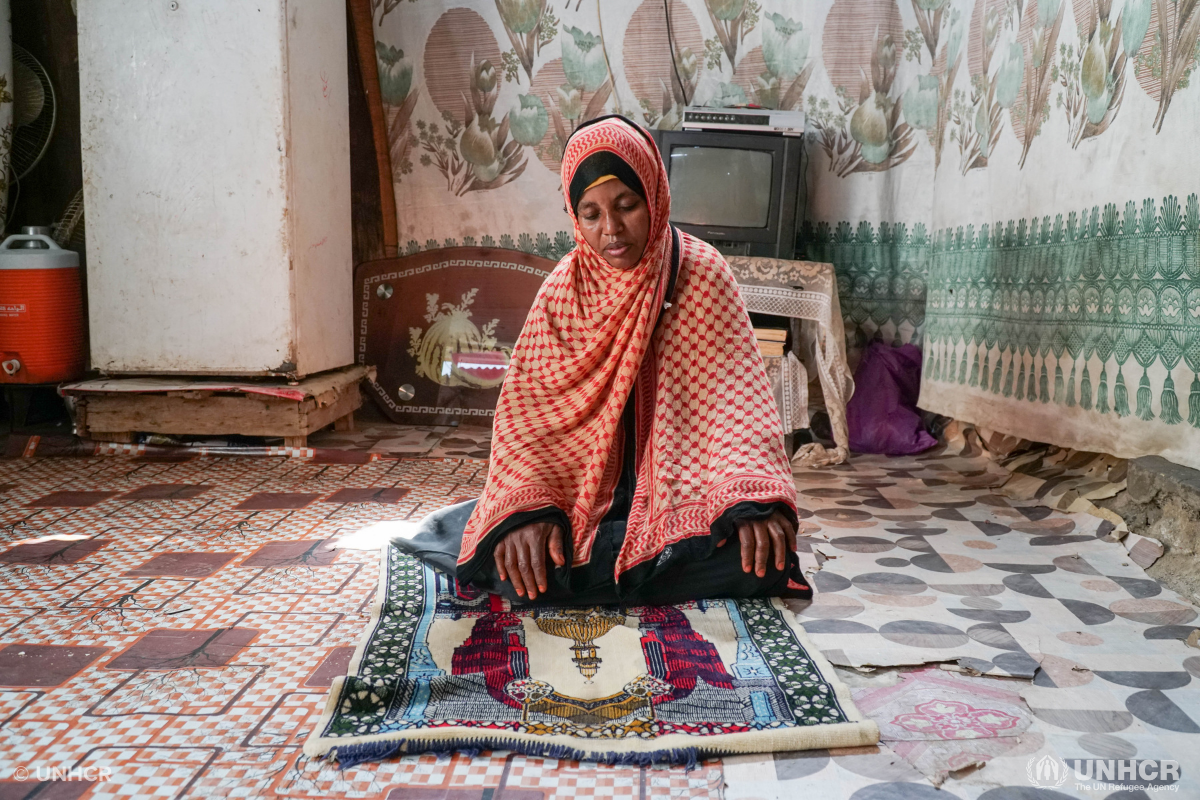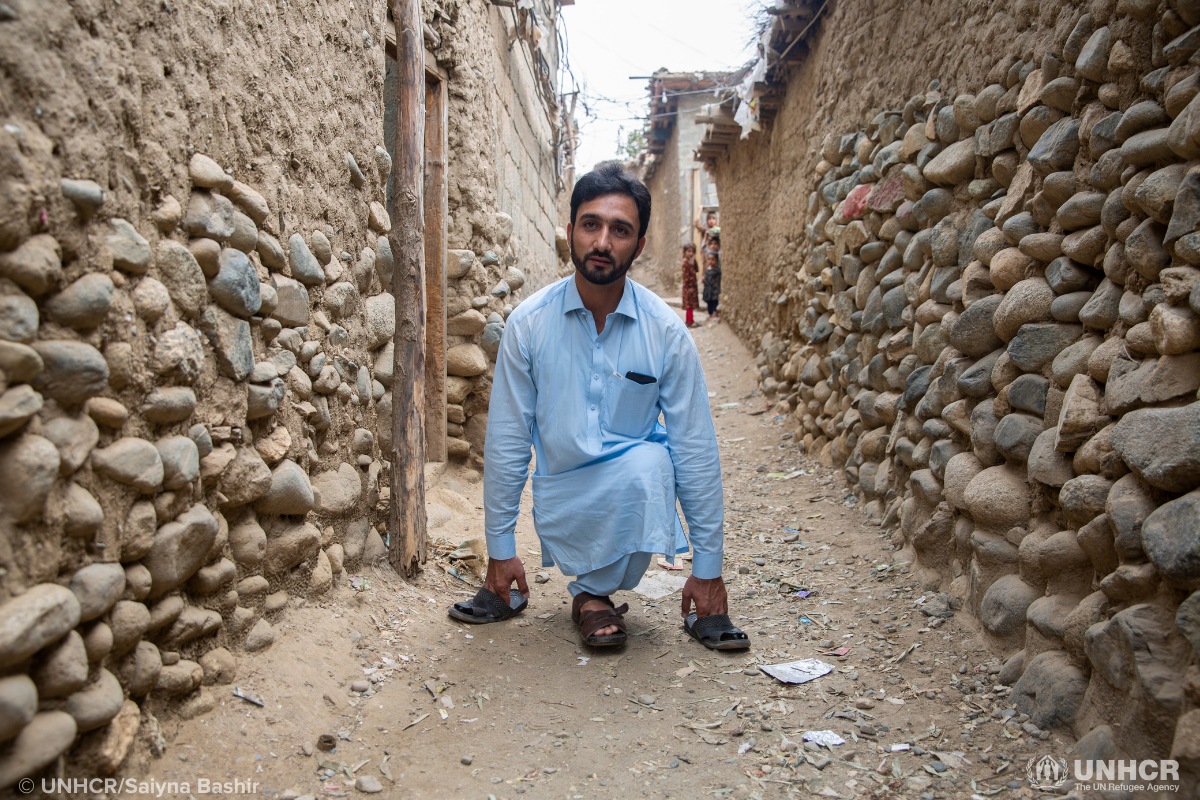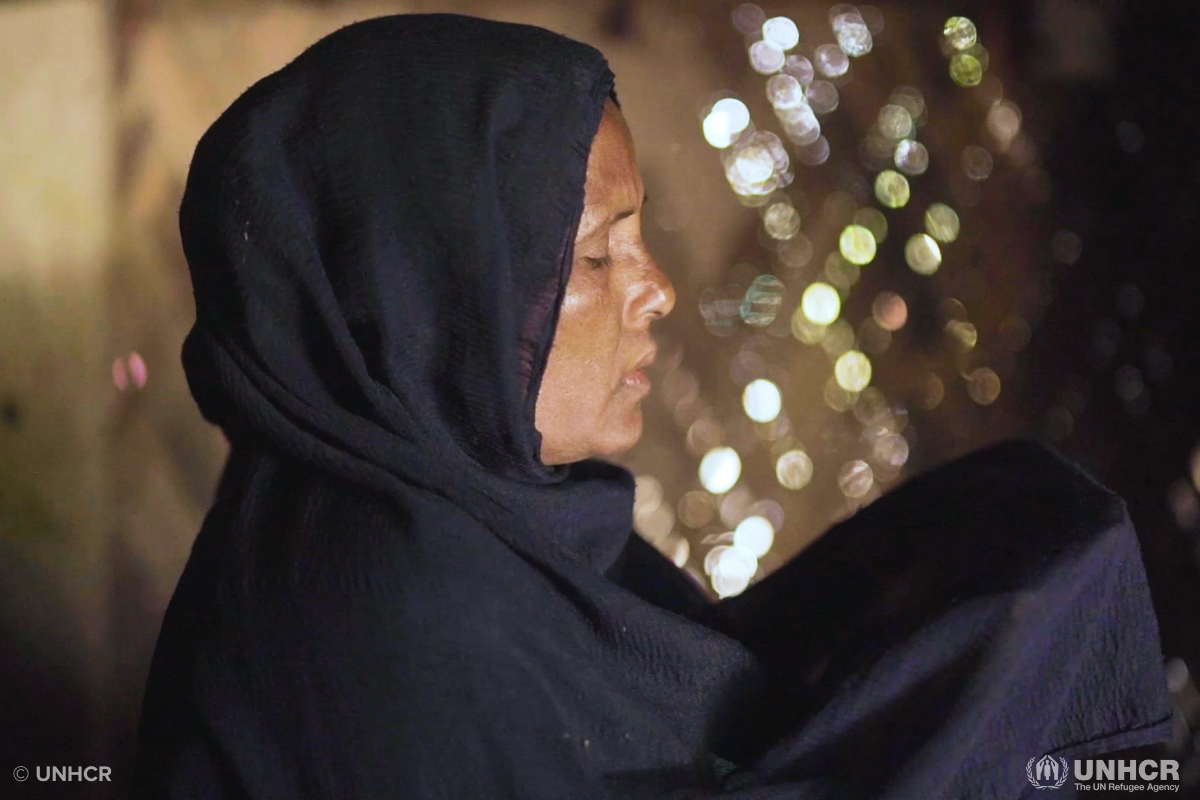How cash assistance is helping refugees in Yemen and Afghanistan this Ramadan
Every year, an estimated two billion Muslims observe the holy month of Ramadan. For many, the season is about reflection, prayer, giving and gathering with friends and family. But for millions of Muslim refugees living in vulnerable communities, this year, Ramadan is bittersweet.
While many people worldwide are celebrating Ramadan, millions of refugees are spending it away from home and struggling to provide for their families. Here's how refugees in Yemen, Afghanistan, Bangladesh and Iraq are observing Ramadan, how UNHCR is helping them celebrate amid conflict and how you can help…
Habibah, Yemen

Since March 2015, conflict in Yemen has uprooted an estimated four million individuals from their homes and nearly 40 percent of internally displaced people (IDPs) live in informal displacement sites where access to essential services is largely inadequate or non-existent.
Despite this, Yemen hosts approximately 137,000 refugees and asylum seekers from the Horn of Africa and is the world's second-largest host country for Somali refugees like Habibah and her family.
Habibah fled Somalia 19 years ago and this year marks another difficult Ramadan spent in a refugee camp.
"We are afraid that in Ramadan, we might have nothing to break our fast with," Habibah says. "My children are too young, and they don't understand that I have nothing," she continues.
Today, Yemen is facing one of the world's worst humanitarian crises, where 66 percent of the population depends on humanitarian aid to survive, and an estimated 16.2 million Yemenis are suffering from hunger, including 5 million people on the brink of famine. As the conflict in Yemen continues, refugees, IDPs and asylum seekers, like Habibah, are facing increasingly challenging circumstances.
Protection and food security remain top priorities for UNHCR, the UN Refugee Agency, which continues to help displaced families meet their basic needs by providing shelter, essential household supplies and cash assistance to an estimated one million people in the region every year.
"UNHCR provides us with cash assistance, and it helps us buy food and pay rent," says Habibah, who, with the cash assistance received, can sustain her family during Ramadan and the months ahead.
Jamil, Afghanistan

After more than 40 years, Afghanistan constitutes one of the most protracted displacement situations in the world. Today, almost six million Afghans have been driven out of their homes and displaced by conflict, violence and poverty.
The Afghan refugee crisis has prompted intensified efforts to support Afghan refugees and their host communities which have generously accommodated them for over four decades. Iran and Pakistan host a majority of registered Afghan refugees, including Jamil and his family.
Jamil was born a refugee in Pakistan after his family fled Afghanistan in 1979. With the support of UNHCR and cash assistance, Jamil was able to obtain a wheelchair and his family received other critical care like shelter and food that helped them build a safer, more secure life in Pakistan. This gave his family hope during uncertain times and an opportunity to look forward to special celebrations like Ramadan.
During the holy month, Jamil spends time reflecting on his journey and praying.
"In the month of Ramadan, we pray to God that health, peace, and prosperity prevail in the country," he says.
Anowara, Bangladesh

In August 2017, armed attacks, massive scale violence, and serious human rights violations forced hundreds of thousands of Rohingya to flee their homes in Myanmar’s Rakhine State. Many walked for days through jungles and undertook dangerous sea journeys across the Bay of Bengal to reach safety in Bangladesh.
Anowara, pictured above, overcame unimaginable challenges while fleeing to Bangladesh
"Our houses were burned down; people were slaughtered and shot to death. I remember my house, my siblings, and the place where my parents died," Anowara explains.
Today, more than 880,000 Rohingya refugees now call the Kutupalong refugee camp in Cox's Bazar Bangladesh home. It is estimated that 90.4 percent of the population in Bangladesh are Muslim and observe the holy month. Still, for many refugee families like Anowara's, this year commemorates another daunting and difficult Ramadan away from home.
"Last Ramadan, I spent four days breaking my fast with water only. We don't have any money to buy food," she says.
Here's how you can share the blessings of Ramadan with displaced refugee families:
Ramadan is a season of self-reflection, giving and helping those in need. By donating your Zakat this year, you can help UNHCR continue to support vulnerable displaced families already facing harsh conditions due to conflict.
By generously giving this Ramadan, you are supporting UNHCR's cash assistance program which allows displaced individuals to observe the holy month with dignity.


